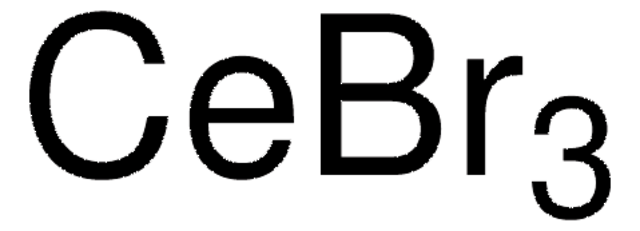401293
Rubidium hydroxide hydrate
Synonym(s):
Rubidium hydroxide, Rubidium(1+) hydroxide hydrate
Sign Into View Organizational & Contract Pricing
All Photos(2)
About This Item
Linear Formula:
RbOH · xH2O
CAS Number:
Molecular Weight:
102.48 (anhydrous basis)
EC Number:
MDL number:
UNSPSC Code:
12352302
PubChem Substance ID:
NACRES:
NA.23
form:
crystals and lumps
Recommended Products
form
crystals and lumps
Quality Level
composition
Degree of hydration, ~1
concentration
≤15.4% (% OH, titration by HCl)
impurities
≤15% Rb2CO3
SMILES string
O.[OH-].[Rb+]
InChI
1S/2H2O.Rb/h2*1H2;/q;;+1/p-1
Inchi Key
CHAWVFWLJTUJNI-UHFFFAOYSA-M
Related Categories
signalword
Danger
hcodes
Hazard Classifications
Eye Dam. 1 - Skin Corr. 1B
Storage Class
8A - Combustible corrosive hazardous materials
wgk_germany
WGK 3
flash_point_f
Not applicable
flash_point_c
Not applicable
ppe
Eyeshields, Faceshields, Gloves, type P3 (EN 143) respirator cartridges
Choose from one of the most recent versions:
Already Own This Product?
Find documentation for the products that you have recently purchased in the Document Library.
Customers Also Viewed
Konstantinos E Papathanasiou et al.
Scientific reports, 7(1), 4743-4743 (2017-07-08)
Easy-to-prepare drug delivery systems, based on smart, silica gels have been synthesized, characterized, and studied as hosts in the controlled release of bisphosphonates. They exhibit variable release rates and final % release, depending on the nature of bisphosphonate (side-chain length
Liangying Li et al.
ACS applied materials & interfaces, 11(2), 2543-2550 (2018-12-20)
The demand for CO2/C2H2 separation, especially the removal of CO2 impurity, continues to grow because of the high-purity C2H2 required for various industrial applications. The adsorption separation of C2H2 and CO2 via porous materials is gaining a considerable attention as
A S Malkani et al.
Science advances, 6(45) (2020-11-08)
Electrolyte cations affect the activity of surface-mediated electrocatalytic reactions; however, understanding the modes of interaction between cations and reaction intermediates remains lacking. We show that larger alkali metal cations (excluding the thickness of the hydration shell) promote the electrochemical CO
Our team of scientists has experience in all areas of research including Life Science, Material Science, Chemical Synthesis, Chromatography, Analytical and many others.
Contact Technical Service











